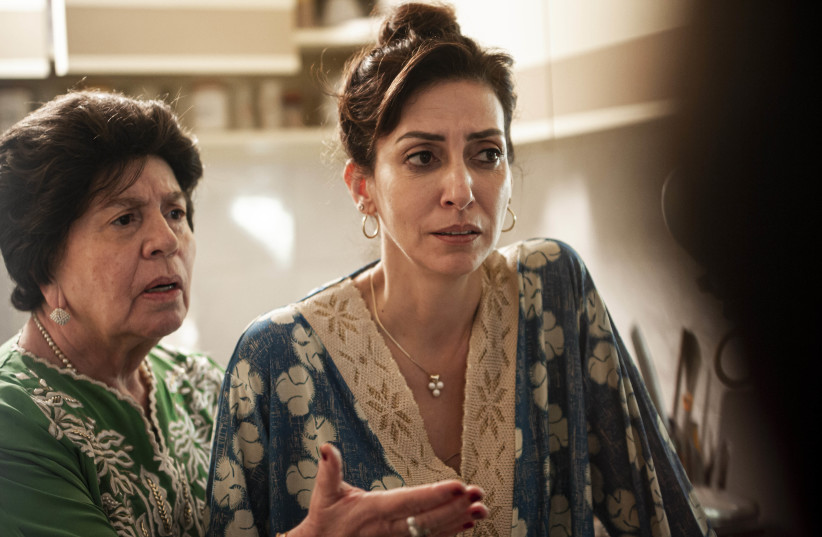Seven Blessings, the female-centric drama about a trauma that haunts a Moroccan bride and her family, was the big winner at the Ophir Awards on Sunday night, taking home the Best Picture Award and nearly every other prize for which it was nominated.
The triumph for this film, which had been widely predicted, took place in an even more politically charged atmosphere than usual, as Culture and Sport Minister Miki Zohar stayed away, knowing that as a member of the governing coalition, he would not be warmly welcomed, to put it mildly. While nearly every winner and presenter voiced support for the anti-judicial reform protests, Samar Qupty, nominated for her Best Supporting Actress for her performance as a Palestinian terrorist in Noam Kaplan’s The Future, wore a white dress with strategically placed splashes of red that looked like bloodstains, to reflect the killings in the Arab community in Israel. Her appearance was more memorable than any of the speeches.
The Best Director and Best Editing awards went to Ayelet Menahemi for Seven Blessings, and the movie won Best Screenplay for a script that was written by its star, Reymonde Amsallem, and Eleanor Sela, an actress who also appears in the movie and who reportedly based the story on her own family. Amsallem won Best Actress, and, in a remarkable year for her, she also received a Best Actress nomination for The Future. Veteran actress Tikva Dayan, who played Amsallem’s mother in Seven Blessings, won the Best Supporting Actress Ophir Award.
Roy Nik, who played the haredi owner of a computer store who fights against corrupt community leaders in Benny Fredman’s Home, won the Best Actor Award, beating out several veteran actors. Nik’s co-star in Home, Dror Keren, cast against type as a haredi thug, won the Best Supporting Actor Award.
The movie, Inbal Perlmutter – If You Let Me Go, directed by Sharon Luzon and Avigail Sperber, the story of a legendary rocker who died young, won Best Feature-Length Documentary Award. Nur Fibak’s A Minor Crime, the story of the director’s childhood experience of sexual abuse, won the award for Best Short Documentary.

Rivlin praises Israeli protesters
When former president Reuven Rivlin came onstage to award the Lifetime Achievement Award to Katriel Schory, who ran the Israel Film Fund for 20 years, he expressed support for the protesters when he invoked the name of his late wife, Nechama Rivlin, who was known to be a great movie lover. He recalled that she would say, “The right to expression is taken, not received. It must be taken.” Rivlin went on to speak about the Israeli Cinema Law, which was passed in 2001 and greatly increased government funding for movies, noting that it was supported by politicians from all political factions, including the current prime minister, Benjamin Netanyahu.
Seven Blessings now becomes Israel’s official selection for consideration for a Best International Feature nomination (a category previously known as Best Foreign Language Film). This is a category in which Israel has had 10 nominations without a win, the record for any country. We will know in late December if the Seven Blessings ends up making the shortlist.
